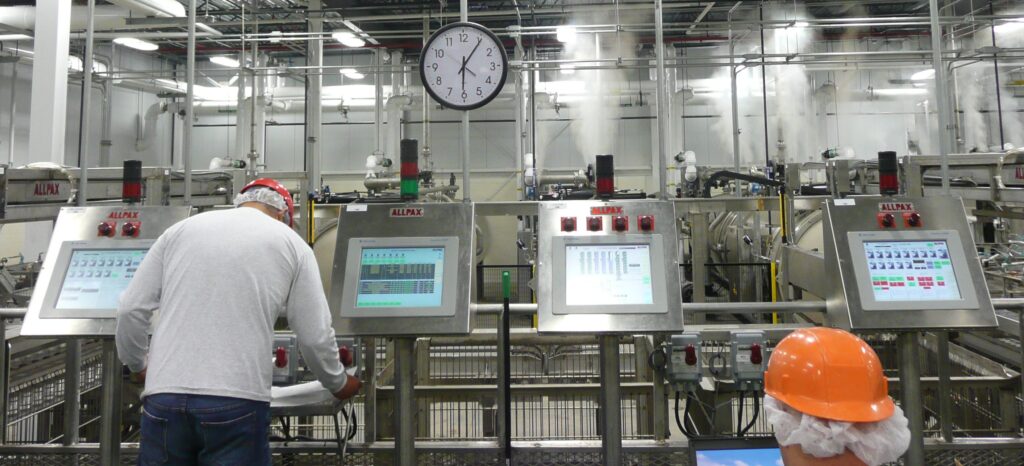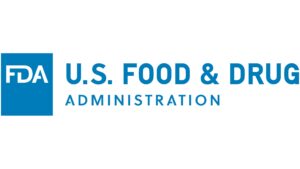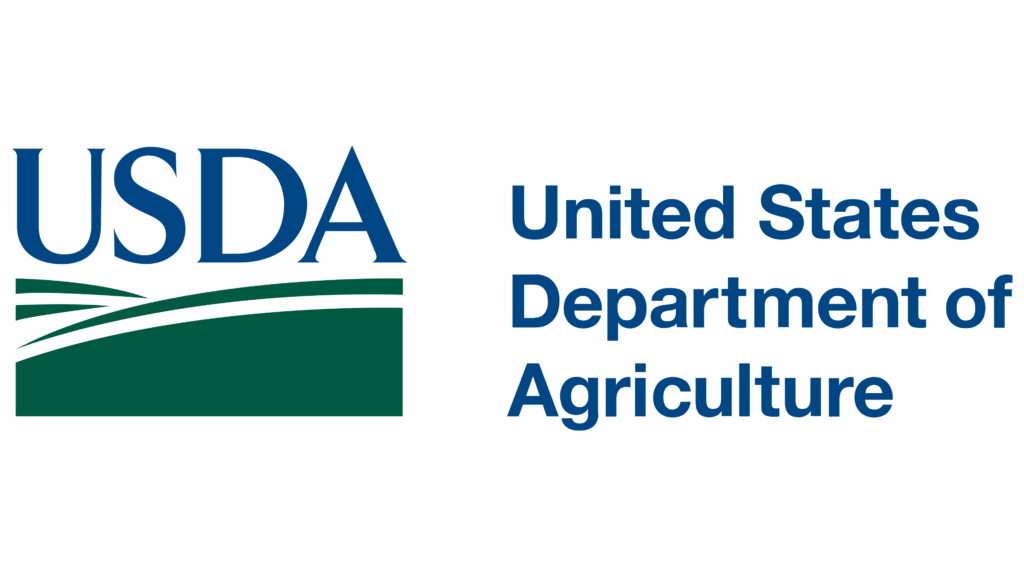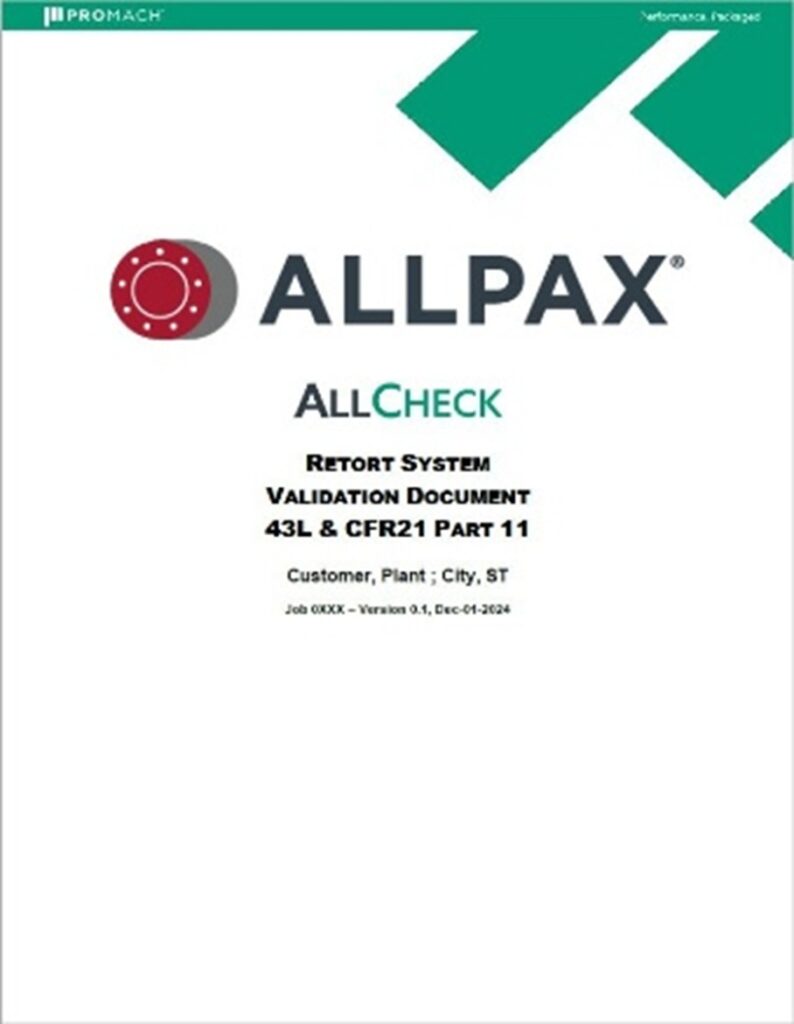
The 1970s brought the introduction of automated industrial controls to the consumer packaged goods manufacturing industry. As the technology advanced, the long-established method of generating manual paper-based process records continued on. Commercial sterilization technology began leaping forward in the 1980s with the introduction of the programmable logic controller (PLC) to the food and beverage manufacturing industry. To deal with these advancements, in 1997, the U.S. government established Title 21 CFR Part 11 which initiated protocols for electronic record keeping that were equivalent to handwritten records and signatures.


Along with this advancing technology and additional regulations, come challenges in dealing with the multitude of variables that can arise in a food / beverage manufacturing environment. These include but are not limited to:
- Changing states between the various steps of the commercial sterilization process (i.e.: come-up-to-temperature, sterilization hold time, pressure cool and atmospheric cool).
- Maintaining container integrity throughout the process.
- Automatically and accurately correcting for process deviations such as temperature and pressure fluctuations.
- Accurate and secure data records that adhere to established regulations.
In this white paper we delve into these issues further with considerations food & beverage manufacturers of shelf stable foods will want to make when selecting a sterilization controls provider. Key among these attributes are industry experience, regulatory understanding & acceptance, specialization, process data acquisition and storage integrity, the capability of adjusting for in-process deviations and most importantly, an integrated system that secures all critical control data points for secure and detailed offline process record review.
An experienced domestic sterilization controls supplier with industry and regulatory experience and a dedicated history providing validated intelligent control systems will have the ability to offer a superior solution to those offered by offshore entries to the North American market. Ongoing communication with customers and decades of experience in the dynamic environment of domestic Good Manufacturing Practices (GMPs) is another edge the market savvy controls provider affords its clients.
Does your supplier have a legacy of validated systems ensuring regulatory acceptance and industry understanding in navigating the mire of federal regulations? Did the purchaser engage their process authority to review the control system details ahead of the vendor selection to review the viability of a validation? Finding out about non-conformances after the delivery of equipment has resulted in the painstaking process of replacing or retrofitting the control system before running production which is very costly in time and capital. In these situations, producers can lean on the deep-rooted knowledge of the established controls provider when integrating existing regulations into new applications or retrofitting dated systems to new more stringent standards. The intimate knowledge of a mature sterilization control system will also have advantages when designing a thorough validation protocol.
Experience specializing in sterilization and thermal process control systems affords the established supplier with the experience to focus on both the thermal processing equipment as well as an understanding on prevention of other production hazards. A history of integrating with the supporting material handling systems downstream can provide additional safety opportunities. For preventing material handling hazards such as unprocessed or under processed product from reaching the distribution chain, the established controls provider can offer product handling and monitoring hardware and software that can be applied to both manual and fully automated thermal processing systems, thus affording producers with additional piece of mind.
In its due diligence when selecting a sterilization control system provider, the food/beverage manufacturer will want to consider the history of the provider of the system. What experience and domestic regulatory knowledge do new entries to the American market back their control systems with? There are numerous considerations that factor into the vital role of the sterilization control system. Below are key requirements with respect to U.S. Title 21CFR Part 11:
| Validatable | Accurate | Protected | Limited Access |
| Traceable | Operational Checks | Authority Checks | Operator Entry Checks |
| Educated Users | Documentation Control | Manifestation | Linked Electronic Records |
| Protected Data | Unique Signatures | Legally Binding | FDA/USDA Certification |
From R&D and thermal process authority perspectives, the above vital attributes of a process control system should also include flexibility and reliability. The ability to develop a thermal process in its various forms such as commercial sterilization, pasteurization and even sous vide of containerized products in a single equipment platform increases the versatility of an investment. This versatility also allows the producer to broaden its product offerings. From the process authority’s perspective, the requirements of a thermal process control system are validatable process records, secure and designated operator privileges and accurate recording of all critical process parameters.

Sometimes, things don’t always go as planned. In such instances an intelligent process control software suite that provides system logic designed to account for and mitigate in-process deviations has the combined advantages of safety and value. When a critical process control variable such as temperature, pressure, flow or agitation deviates from a prescribed and validated critical process setpoint, the product is no longer considered “safe”. The advent and market acceptance of fragile containers has added to the critical items that need to be controlled in production. Maintaining the delicate seals of these containers requires specialized and highly responsive pressure control capabilities. In the event of process deviations, the product load or lot in question which may be an exceptionally large quantity, must either be set aside for subsequent potential validation or discarded as a loss. Worse yet, if the product is introduced into the distribution chain before a deviation is isolated, the problem now becomes a serious liability. How sure are you of your thermal process controller’s ability to control, collect and analyze all necessary datapoints, automatically correct for deviations and provide the necessary records for regulatory review.
An established domestic provider of control systems that is familiar with equipment of various ages, technology platforms and capabilities can offer more options for food and beverage manufacturers. Whether its solutions for new construction, retrofitting & replacing outdated control systems, adding automation and integration to downstream assets or a complete system validation, the most established supplier in your market can offer you the best options. An added benefit of the established provider is that because they have been around for a while, they will likely be able to offer the best customer support in installing, maintaining and updating these control systems for optimal production and consumer safety.
Below is a communication from Initiative Foods, a U.S. based contract manufacturer and private label producer of shelf-stable baby food products serving U.S. and global markets:
“Factors we consider when choosing a retort process control system:
- Operator Friendly – clean, simple display that works for the highest paid Process Authority down to the lowest paid retort operator
- Reporting – must provide` clear, simple reports that report necessary information that can be shared with external Process Authority or relevant government agency
- Reliability – the system must be capable of performing when the utilities do not…data preservation is critical
- Recoverable – can data be recovered easily when failure events happen
- Supportable – is support available? Do they speak English? Are they in a time zone that allows a phone call with a live person?
- Recognition – is the platform (controls) known within the industry by contracted Process Authorities?”
When updating an existing installation or designing a new manufacturing facility, an intelligent and safe sterilization control system is vital. Is yours one that since its beginning, has had design considerations dedicated to providing the most effective, thorough and safe solution for the food and beverage manufacturer? It’s just smart business to demand a process controller that will keep your commercial sterilization or other thermal processing assets as well as supporting equipment smarter and safer.
